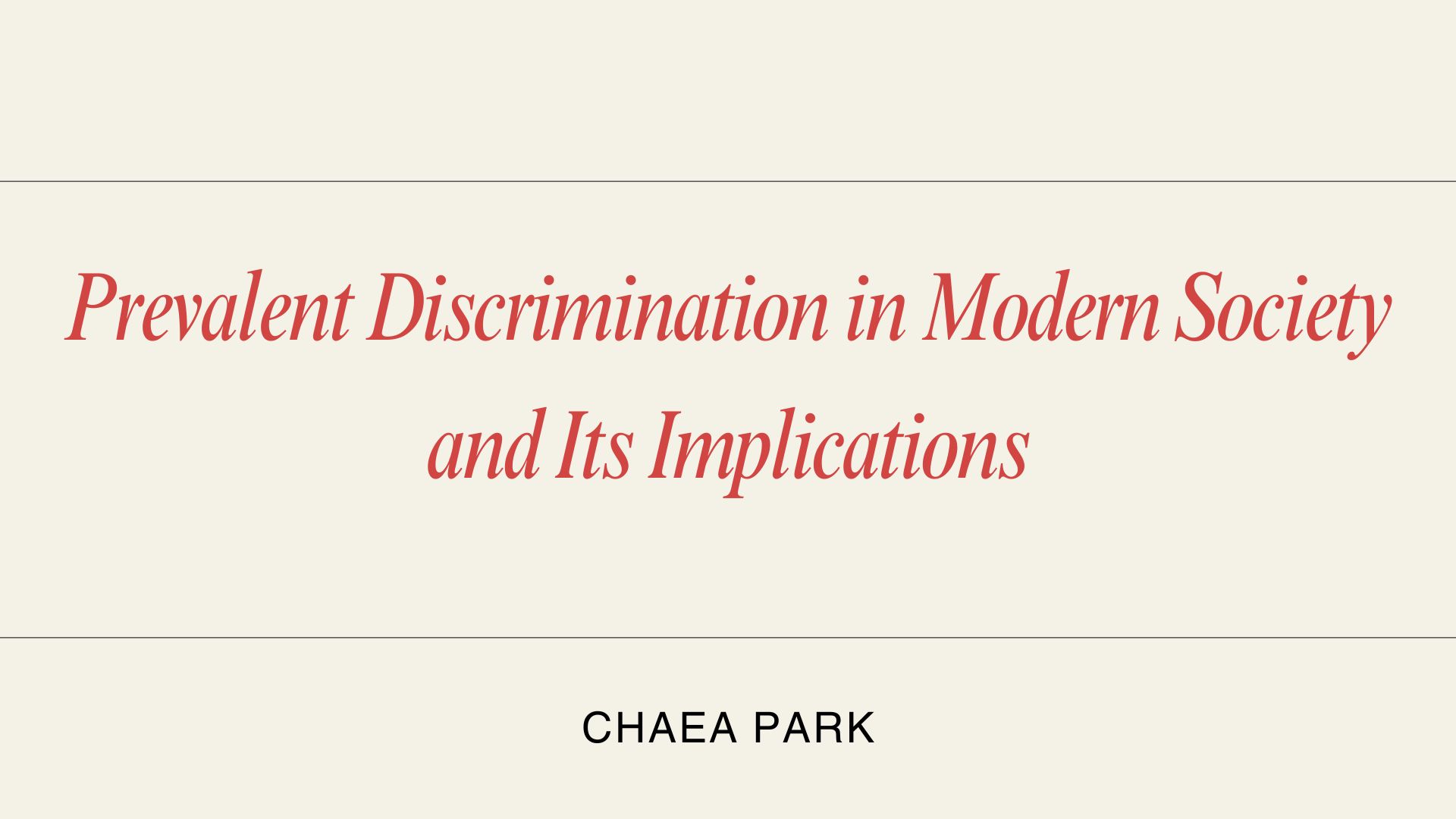When examining the Articles of Human Rights of the United Nations (UN), it states, “Human beings shall not be discriminated against on the basis of nationality, religion, sex, or other status.”
Throughout history, countless individuals have sacrificed themselves to oppose various forms of discrimination.
Nevertheless, discrimination in various forms still exists in modern society.
To enhance the clarity of this article, the term ‘discrimination’ within this article includes negative elements.
This article aims to discuss the implications of discrimination for humanity and the ideals that society should strive for.
Society sometimes imposes unfavorable conditions on certain groups or individuals. We often consider this as discrimination.
Most importantly, when those specific individuals or groups feel a ‘disadvantage,’ they claim they have been discriminated against.
The crucial point here is that discrimination is relative; it is not an absolute concept with a definitive answer.
Similarly, even if fairness is achieved within society, discrimination will still exist because it is relative.
Humanity has made significant efforts and sacrifices to eliminate blatant discrimination. Examples include gender discrimination, racial discrimination, and religious intolerance.
Conversely, there are inherent or socially constructed elements, such as academic background and socio-economic status.
However, individuals often do not define these as discrimination but rather as culture or effort. Therefore, people sometimes belittle others under the pretext that they did not make sufficient effort.
This applies not only to interpersonal relationships but also to communities and society as a whole. The world operates based on capitalism or meritocracy, which values ability.
Society discusses justice. Nations based on the rule of law enact laws and make judgments accordingly.
In reality, the scope of the definition of discrimination is broader than expected. It is not limited to nationality, religion, or gender; it can apply to all elements existing within society.
The differing outcomes of individual efforts compared to others are not considered ‘discrimination.’ The results of efforts should vary, and such efforts should be highly regarded. If the efforts were legitimate and the process was legal, the success of an individual or group should yield positive results.
However, neither individuals nor society should discriminate against others due to their own or society’s positive and successful outcomes.
Discrimination should not occur because an individual’s abilities are relatively superior or because their economic status is higher.
This represents an unfair, unreasonable, and unequal society—a society that does not advocate discrimination but still practices it.
Sometimes, the success of a minority is discrimination against the majority. It does not define the achievements and accompanying efforts and sacrifices of individuals or groups as discrimination.
Discrimination is defined as actions that lower or ignore the value of others by expressing superiority under social or economic conditions.
Society continues to discuss justice. A society that discusses justice makes judgments based on law.
However, there are conditions. Judgments are made according to the situation. Even for the same crime, the punishment differs based on circumstances.
Some people receive probation for causing the destruction of a family due to drunk driving, while others receive a prison sentence for causing a minor accident with a lower blood alcohol level.
This is not an uncommon example but can be found easily in all fields, including education, business, healthcare, and workplaces.
Individuals and society should not become insensitive to the mentioned forms of discrimination but should think critically and respond accordingly.
If a society wants to discuss justice, it must maintain an analytical perspective to determine whether the rightful outcome was derived from a legitimate process.
If indiscriminate discrimination becomes rampant in society, the result will be a society where only a few are acknowledged.
This not only contradicts democracy but also nullifies the sacrifices humanity has made for freedom and human rights over the years.
Therefore, individuals and society must continually question and strive to build a rational and just society.
Although discrimination is relative and cannot be entirely eradicated, at least the situation where only a few benefits while moral consciousness and ethics are ignored can be avoided.
Just as we learned morality in our childhood, now adults and society must work to correct wrong perceptions and discrimination through practice.

